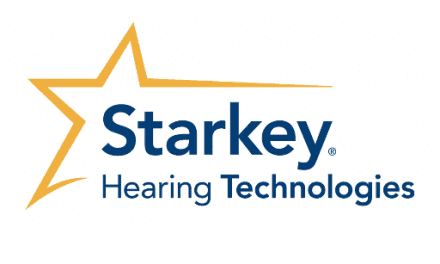
Dennis Van Vliet, AuD, has been a prominent clinician, columnist, educator, and leader in the hearing healthcare field for nearly 40 years, and his professional experience includes working as an educational audiologist, a private-practice owner, and VP of audiology for a large dispensing network. He currently serves as the senior director of professional relations for Starkey Technologies, Eden Prairie, Minn.
I recently had the opportunity to visit Beirut, Lebanon, as part of a team coordinated by two philanthropic organizations (ALO Cultural Foundation and the Starkey Hearing Foundation) where we spent 2 days fitting more than 800 children and adults with hearing aids. My role was not only to help with the fitting process, but to help with setting up local follow-up services for the recipients of the hearing aids. As a part of my visit, I also visited the home of a family at the request of a friend. His mother is 90 years old and homebound, unable to easily get out for services related to her hearing loss. Needless to say, all of this created many new and different experiences for me, and a treasure trove of good stories to share.
Visiting anywhere in the Middle East is an adventure because of the history of conflict and the requisite security measures for travel. Beirut is unique because of its history of being a resort city on the Mediterranean Sea, and its numerous cultures that have coexisted for centuries. Although it has been stable for some time, visible contrasts are apparent in many areas. A new and modern high rise building overlooking the shoreline may sit next to a skeleton of an structure with obvious scarring from a now nearly forgotten battle. I was able to walk around the city and shoreline of this recovering city with a sense of safety and security. At the same time, visits to hotels and many official buildings required navigating through a complicated gauntlet of security, often under the supervision of heavily armed guards.
As I left the city on my way home, I entered the airport that had a very unfamiliar feel compared to other airports. There were no ticket counters or curb-side baggage services. I was directed to pass through a security line prior to approaching the check-in desk. After receiving my boarding pass, I was confronted with another security lane. There, I received a good deal of scrutiny because I was carrying an otoscope, curettes, and forceps. None of these are particularly weapon-like, but they elicited a great deal of attention. It took about 10 minutes of explanation to establish my credentials and the purpose for the tools before I was allowed to proceed. As I was repacking my bag, one of the security guards made eye contact and addressed me in a serious manner: “I have this noise in my ears…”
Clearly, in a short time I had successfully managed to establish my credentials to the point that I was no longer just a passenger requiring clearance, but someone with apparent expertise of value to the guard.
The flights and connections back to the United States took more than 20 hours, so I had plenty of time to reflect on this incident. At face value, the irony of the rapid turn of attitude is amusing. At the same time, I wondered what it was about my behavior that may have influenced the attitude change.

We may be confronted with a similar circumstance each time we meet a new patient. How do we establish a rapport that communicates our competence and purpose so that we can be effective as trusted professionals and not someone with simply a sales goal? In the encounter at the Beirut airport, I was polite but direct in my communication. No, I couldn’t find my way back to a bag that had been checked in 30 minutes ago. These items are not dangerous and are necessary for my work as an audiologist. In that context, that was all that was needed.
In a patient-professional relationship, things are different. Importantly, the patient typically doesn’t carry a gun. They do have, however, the weapon of free will to decide whether or not to accept and follow our treatment recommendations. I can understand that learning about their hearing loss can be a very personal thing for any patient.
No matter how many times we have seen a similar hearing loss profile, it is unique to that patient and very likely new information to them. I try to personalize the profile and tie in their complaints with the data so that the entire picture not only makes sense to the patient, but communicates the fact that I can identify with their complaints. That translates into a sense of empathy, and in turn gives them confidence that I have their best interests in mind when we discuss treatment recommendations. That confidence allows me to make a limited range of options for them to choose from and a strong recommendation for action. The combination of their confidence in my interest in them, and a small array of choices makes their decision process uncomplicated and easy to follow.
The Final Word? We have a unique opportunity when we can offer treatment recommendations to patients. Before they can take our recommendations seriously, they need to believe in our competence, trust our motives, and feel that the recommendation is right for them. We do not have much time to set the stage properly. Establishing trust with direct communication and a clear interest in their problem is a good start. Listening to their needs and developing a treatment plan that addresses their personal circumstance is a great way to finish.
Correspondence can be sent to HR or Dr Van Vliet at: [email protected]




